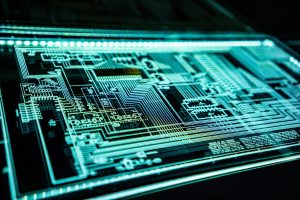Reshaping Future of Technology through Intelligent Design
The evolution of technology has been constant and rapid, with groundbreaking innovations happening every day. From smartphones to artificial intelligence, technology has shaped our lives in more ways than we could have ever imagined. But what if we told you that the future of technology is not just about making things faster and smarter, but also about making them more intelligent? Enter intelligent design, the next big thing in the tech world that has the power to reshape the future of technology as we know it.
What is Intelligent Design?
Intelligent design is a concept that revolves around creating technology that not only functions efficiently but also has the ability to think and make decisions on its own. It is a fusion of technology and artificial intelligence, where the end result is a digital system that can learn, adapt, and solve problems independently.
The foundation of intelligent design lies in machine learning and deep learning algorithms. These algorithms allow machines to analyze data, learn from it, and make predictions or decisions based on that data. This not only improves the accuracy and speed of processes but also eliminates the need for human intervention in certain tasks.
How Intelligent Design is Reshaping the Future of Technology
1. Automation and Efficiency
Intelligent design has the potential to revolutionize industries by automating mundane and repetitive tasks. This not only saves time and resources but also eliminates the chances of human error. In industries like manufacturing, intelligent robots with machine learning capabilities can handle the entire production process, from raw material selection to packaging and shipping.
Similarly, in the healthcare industry, intelligent design is being used to automate tasks like patient data analysis, medical imaging interpretation, and even virtual consultations. This allows for more accurate diagnoses and frees up doctors’ time, allowing them to focus on more critical cases.
2. Personalization and Customization
Intelligent design is also making waves in the world of consumer technology. With the help of deep learning algorithms, devices like smartphones and smart TVs can now understand consumer behavior and preferences to provide personalized recommendations and content. This not only enhances the user experience but also makes it more convenient for consumers to access the information and services they need.
Moreover, the customization aspect of intelligent design is also seen in areas like product design and manufacturing. With the use of AI and machine learning, companies can now create products tailored to the specific needs and preferences of individual consumers, leading to increased customer satisfaction and loyalty.
3. Advancements in Healthcare
The healthcare industry has seen significant advancements with the implementation of intelligent design. Apart from automation and personalization, intelligent design has also been used in the development of smart medical devices that can monitor vital signs, predict and prevent diseases, and even assist with surgeries.
In addition, intelligent design is also paving the way for precision medicine, where treatments are tailored to an individual’s genetic makeup and medical history. This not only reduces the chances of misdiagnosis but also leads to more effective and efficient treatments.
Challenges and Ethical Concerns
With the potential for significant disruptions in various industries, it is no surprise that intelligent design has been met with some challenges and ethical concerns. The fear of job loss and job replacement by machines has been a major concern, leading to debates about the need for regulations and guidelines for the use of intelligent design.
Moreover, there are also concerns about privacy and security when it comes to the vast amount of data collected and used by intelligent systems. As intelligent design continues to advance and become a part of our daily lives, it is crucial to address these concerns and ensure that ethical standards are upheld.
The Future of Intelligent Design
Intelligent design is still a relatively new concept, and its full potential is yet to be realized. However, with the pace of advancements and innovations in this field, the future looks extremely promising.
From personalizing our devices to automating our homes and workplaces, intelligent design is reshaping the future of technology in ways we never thought possible. With continued research and development, there is no limit to what intelligent design can achieve, and the possibilities are endless.
Final Thoughts
Technology has come a long way, but intelligent design is set to take it to a whole new level. By combining technology and intelligence, we are paving the way for a more efficient, personalized, and intelligent future. However, it is crucial to carefully navigate the challenges and ethical concerns associated with intelligent design to ensure a responsible and sustainable future for all.











